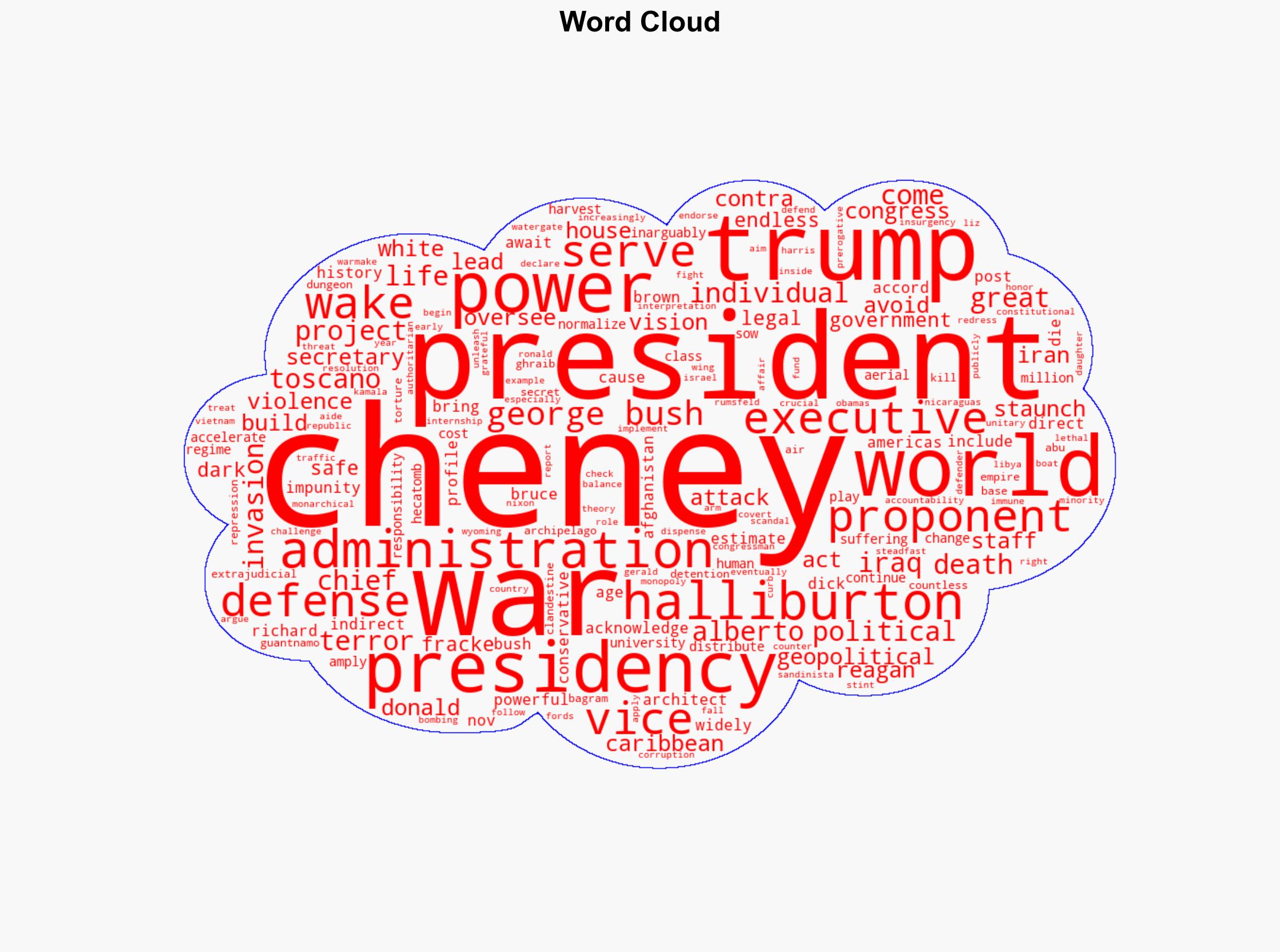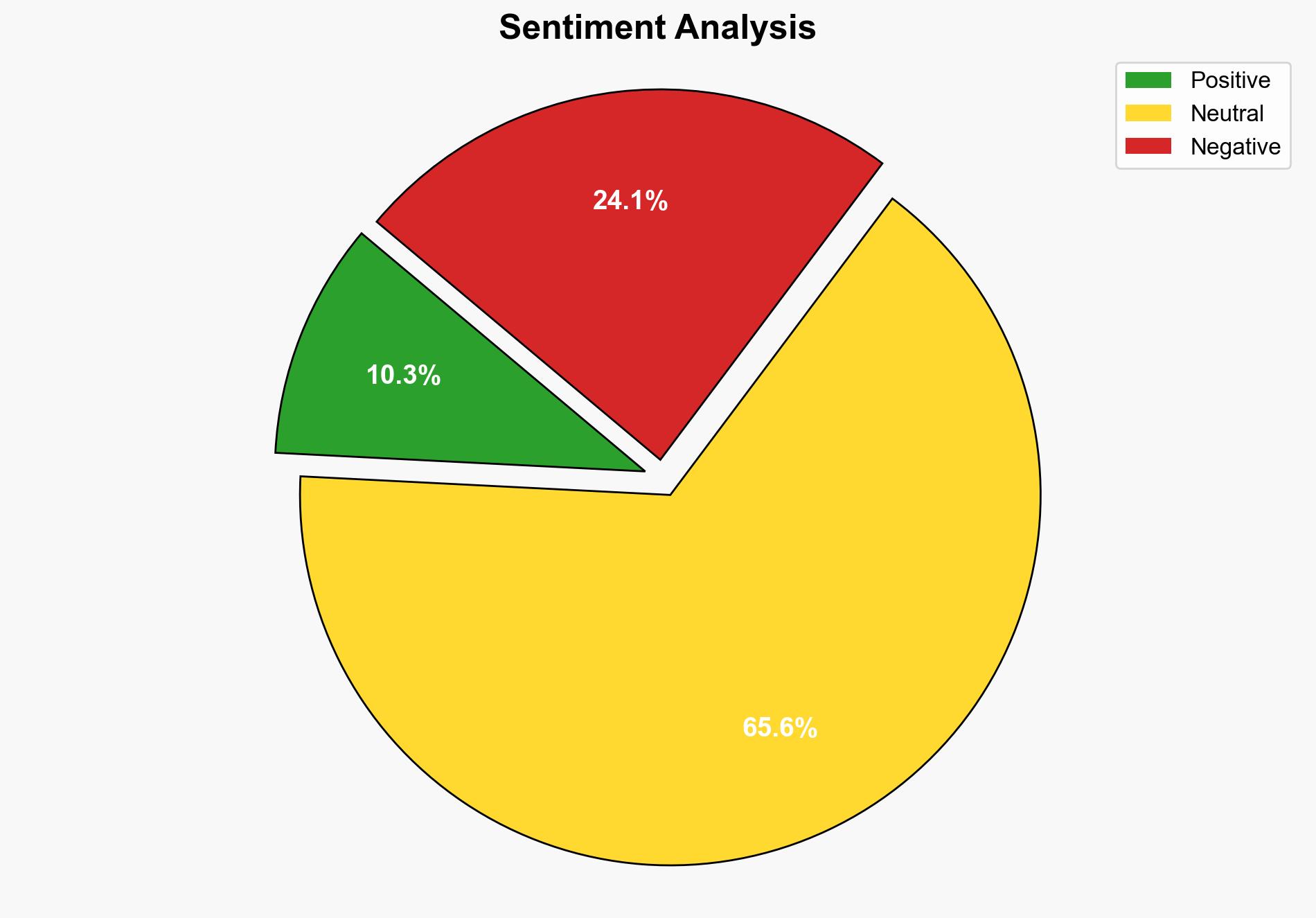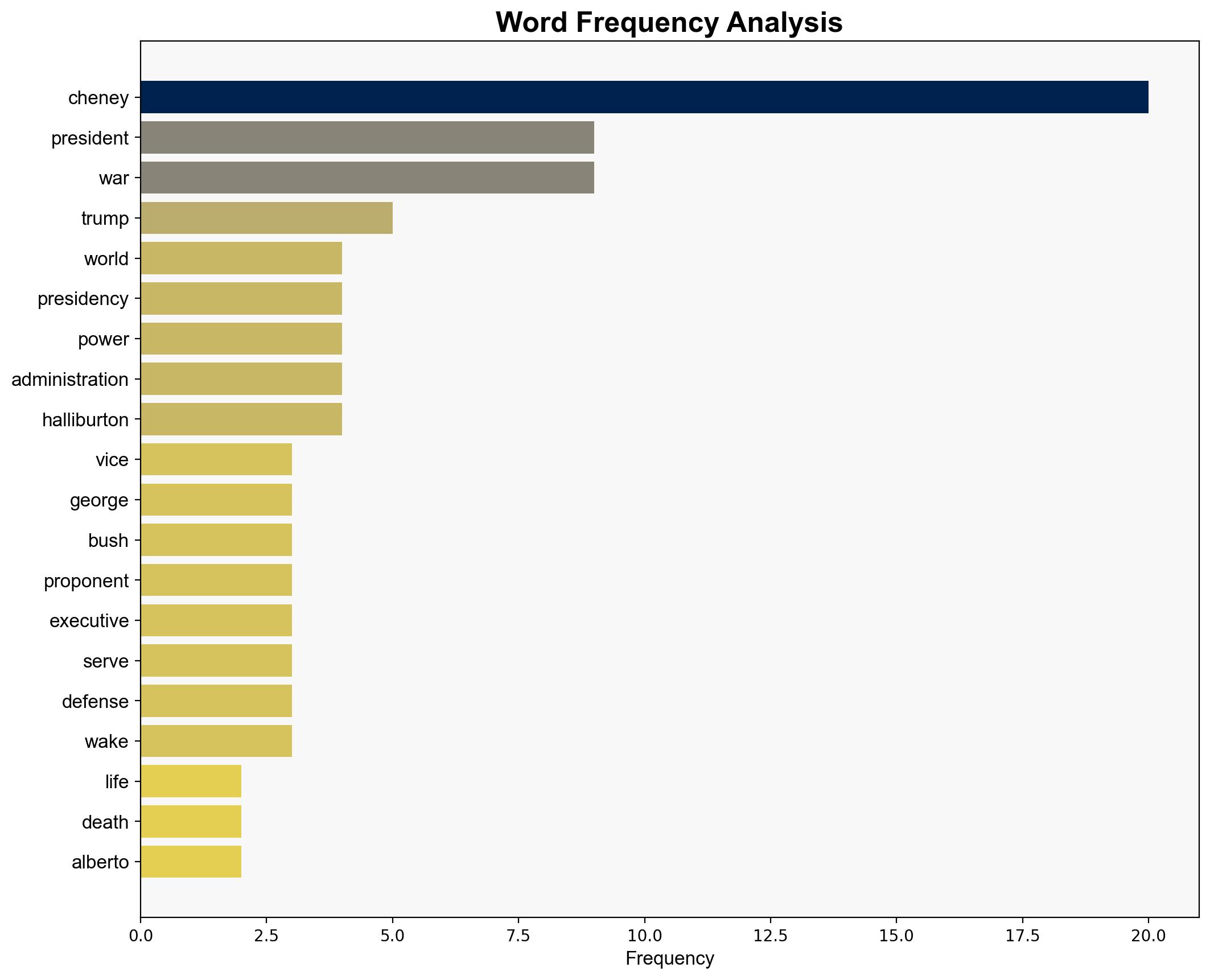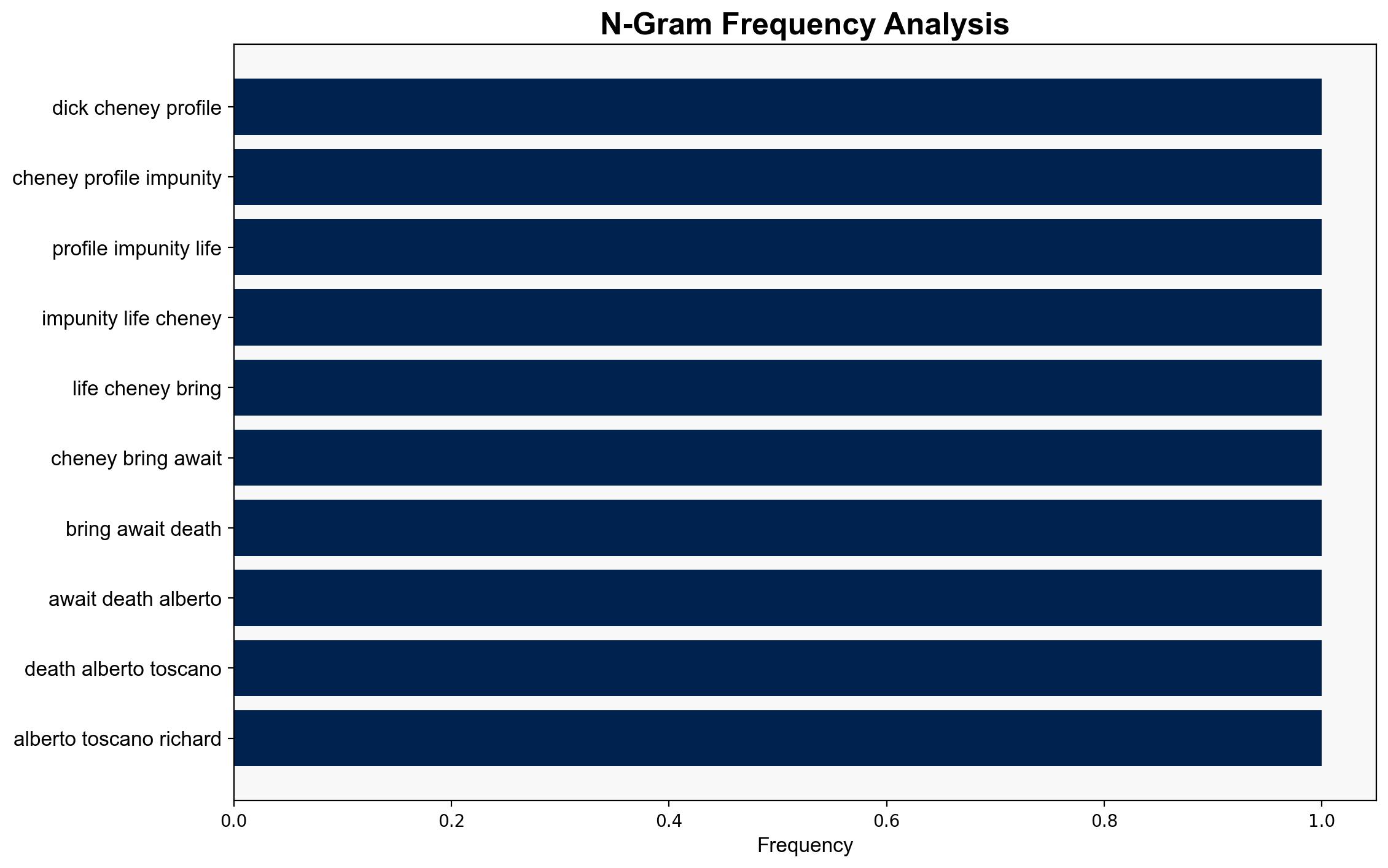Dick Cheney A Profile in Impunity – In These Times
Published on: 2025-11-05
Intelligence Report: Dick Cheney A Profile in Impunity – In These Times
1. BLUF (Bottom Line Up Front)
The analysis of Dick Cheney’s political legacy presents two primary hypotheses: (1) Cheney’s actions were driven by a strategic vision to enhance U.S. geopolitical dominance, and (2) Cheney’s policies were primarily motivated by personal and corporate interests. The first hypothesis is better supported by the data, given the consistent alignment of his actions with a broader strategic framework. Confidence in this assessment is moderate due to potential biases in the source material. It is recommended to further investigate the long-term impacts of Cheney’s policies on current geopolitical dynamics.
2. Competing Hypotheses
1. **Strategic Geopolitical Dominance Hypothesis**: Cheney’s actions, including the advocacy for the unitary executive theory and military interventions, were primarily aimed at establishing and maintaining U.S. global hegemony. This is supported by his involvement in shaping defense strategies and foreign policy think tanks.
2. **Personal and Corporate Interest Hypothesis**: Cheney’s policies were largely influenced by personal gains and corporate affiliations, notably his ties to Halliburton and the subsequent benefits received by the company during his vice presidency.
Using ACH 2.0, the first hypothesis is more consistent with the available evidence, particularly Cheney’s long-term strategic roles and policy implementations.
3. Key Assumptions and Red Flags
– **Assumptions**: The analysis assumes Cheney’s actions were primarily driven by strategic considerations rather than personal gain. It also assumes the source material is unbiased and comprehensive.
– **Red Flags**: Potential bias in the portrayal of Cheney’s motives, given the critical tone of the source. Incomplete data on the internal decision-making processes and the influence of external advisors.
4. Implications and Strategic Risks
Cheney’s legacy of advocating for strong executive power and military intervention could influence current and future administrations, potentially leading to increased authoritarianism and international conflicts. The normalization of such policies may also strain diplomatic relations and fuel anti-American sentiment globally.
5. Recommendations and Outlook
- Conduct a comprehensive review of Cheney’s policies to assess their long-term impacts on U.S. foreign relations and domestic governance.
- Scenario-based projections:
- Best Case: Increased transparency and accountability in government reduce the risk of authoritarian policies.
- Worst Case: Continued erosion of checks and balances leads to further geopolitical instability.
- Most Likely: Incremental policy adjustments without significant shifts in strategic direction.
6. Key Individuals and Entities
– Dick Cheney
– Liz Cheney
– Donald Trump
– Kamala Harris
– Halliburton
– Project for the New American Century
7. Thematic Tags
national security threats, cybersecurity, counter-terrorism, regional focus





